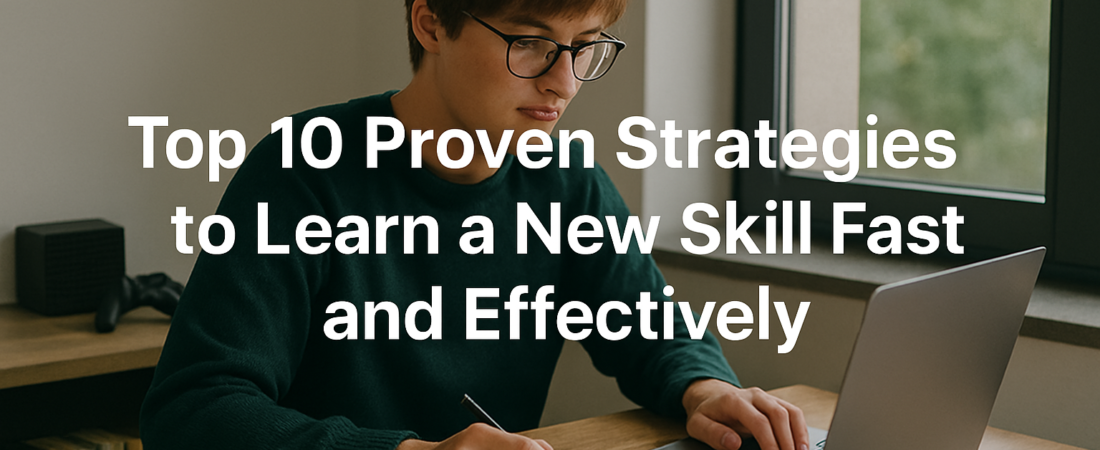How to Learn a New Skill Quickly
In today’s fast-paced world, the ability to pick up new skills quickly is not just an advantage — it’s a necessity. Whether you’re learning a new language, developing a programming skill, or diving into public speaking, mastering the right strategies can drastically reduce your learning curve. This guide outlines effective, actionable steps that will help you learn any new skill quickly and retain what you’ve learned.
1. Set a Clear Goal
Before diving into learning, define what success looks like. A clear, measurable goal keeps you focused and provides a target to reach. Instead of a vague aim like “learn to code,” set a specific goal such as “build a basic website using HTML and CSS in two weeks.”
2. Break It Down Into Manageable Parts
Chunking the skill into smaller components helps ease the learning process. Focus on mastering one component before moving to the next. For example, if you’re learning guitar, begin with basic chords before moving to scales and harmony.
3. Use the 80/20 Rule
Also known as the Pareto Principle, this method suggests that 80 percent of results come from 20 percent of efforts. Identify and focus on the most valuable parts of the skill that will give you the highest payoff. For language learning, this might mean focusing on the most commonly used words and phrases.
4. Learn by Doing
Active practice is far more effective than passive consumption. Engage in hands-on learning instead of just watching videos or reading. If you’re trying to learn photography, start taking pictures immediately rather than just reading manuals.
5. Practice Consistently
Consistency is key to mastering a new skill. Even short, daily sessions can be more effective than infrequent longer ones. Make learning a part of your routine and stick to it regularly.
6. Embrace Mistakes and Feedback
Don’t be afraid to make mistakes. They are an essential part of the learning process. Seek constructive feedback and use it to refine your understanding. Progress often comes from reflection and adjustment.
7. Teach What You Learn
One of the fastest ways to solidify knowledge is to teach it to someone else. This technique forces you to simplify and clarify concepts, making it easier for you to understand and remember.
8. Remove Distractions
Focused learning requires concentration. Eliminate interruptions whether it’s social media, noisy environments, or multitasking. Setting dedicated time for practice in a quiet, organized space improves retention and efficiency.
9. Use Multiple Learning Methods
Utilize different resources and formats – videos, books, podcasts, and hands-on tools. Combining visual, auditory, and kinesthetic learning styles enhances comprehension and long-term memory.
10. Celebrate Milestones
Recognize and reward your progress. Celebrating small wins keeps you motivated and reinforces positive learning habits. Each milestone is one step closer to mastering your new skill.
Final Thoughts
Learning a new skill quickly is achievable with the right mindset and strategy. Stay curious, stay committed, and remember that every expert was once a beginner. By applying the steps above, you’ll not only learn faster but also retain your new knowledge effectively.
Start today — pick a skill, define your goal, and take the first small step. Your future self will thank you.

